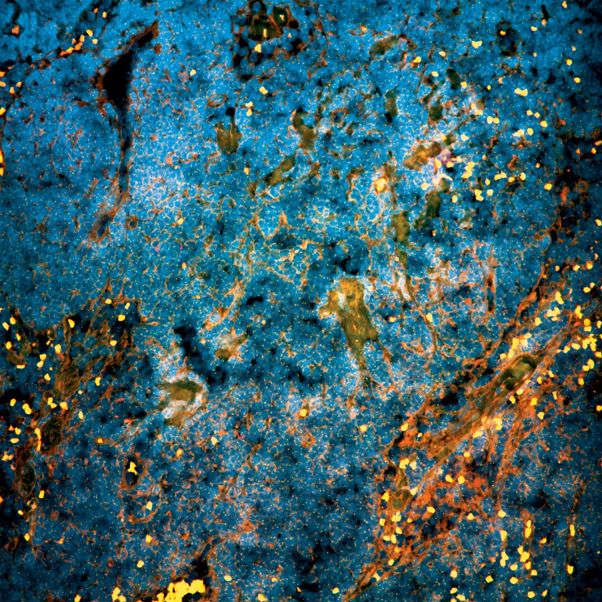"Once prostate cancer metastasizes, the tumor cell travels back in time to the embryonic state, when the prostate develops in utero," says research leader Wilbert Zwart, endowed professor at the Eindhoven University of Technology and specialist in hormone-sensitive cancers, such as prostate cancer.
During fetal development, the formation of the prostate is facilitated by several activated DNA programs in specific locations. Once the prostate is "done", these programs are turned off. And they remain off, even in patients with prostate tumors. Until the tumor metastasizes.
This "organ development" DNA program in prostate cells appears to retain a memory of its previous activity. As fellow research leader Matthew Freedman states, the activity seems to have left behind some sort of molecular footprint. The tumor "abuses" this slumbering memory when spreading throughout the body.
Wilbert Zwart: "This turned out to be the case in every metastasis we studied. Every tumor is unique, but all metastatic tumors shared this one trait: the metastatic tumor cells reactivated DNA that has been inactive since fetal development, in order to metastasize. This is a tremendously valuable discovery! As a potential follow-up question, we could consider whether this process is unique to prostate cancer, or whether other tumor types also use this embryogenesis-specific program to metastasize." The researchers hope that this new knowledge will lead to the development of new treatment options.
Among the researchers involved in this study were medical specialists André Bergman and Henk van der Poel of the Netherlands Cancer Institute, both specialized in prostate cancer. Metastases often make cancer incurable. Bergman: "Thanks to this important step in our understanding of the development of metastatic cancer, we are one step closer to potential preventative measures. We owe our discovery to the many patients who chose to cooperate with our research, and the development of new treatment options."
Zwart: "During our research, we found multiple proteins that are involved in the DNA programs for organ development that appear to be hijacked by metastatic prostate cancer. By using drugs to inhibit these proteins, we want to try and block tumor metastasis. We are currently initiating these experiments at our lab, and hope to eventually translate our findings into medical practice."
In order to conduct their research, the researchers from Amsterdam and Boston compiled the world's biggest database of DNA regulating ("epigenetic") processes in healthy prostate tissue and tumor tissue. They analyzed DNA regulation in hundreds of surgically removed prostate samples showing the transition between healthy prostate tissue and cancer, and between non-metastatic prostate cancer and metastatic tumors. This led to the discovery of the patterns that lie at the root of metastases.
- Dutch Cancer Society/Alpe d'HuZes
- Oncode Institute
- NWO
- Prostate Cancer Foundation (US)
- NIH (US)
 nl
nl
 Nederlands
Nederlands
